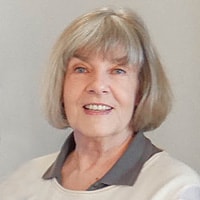SOU Board of Trustees approves realignment plan
(Ashland, Ore.) — The Southern Oregon University Board of Trustees voted unanimously today to adopt the SOU Forward fiscal realignment plan – a four-plank strategy that balances expenses with revenue and then prepares the university for strategic growth by diversifying its sources of revenue.
The board focused primarily on the plan’s first plank – immediate cost management – while the three planks or elements that are centered on revenue generation will unfold over the next several years.
“University leaders clearly understand SOU’s difficult position and have identified the steps necessary to address the institution’s immediate financial threats,” said Daniel Santos, chair of the SOU Board of Trustees. “What my fellow board members and I find most hopeful is that this plan also lays out a course of action that will enable the university to diversify its revenue and avoid similar threats in the future.”
The cost management measures that trustees adopted will reduce expenses by $3.6 million this year while identifying another $9 million in recurring cost reductions. They address structural flaws in the university’s financial model that otherwise would result in a projected $14.6 million deficit by the 2026-27 fiscal year.
The measures will reduce the SOU workforce by the equivalent of almost 82 full-time positions – about 24 of them resulting in current employees losing their jobs. The remainder will be achieved through a combination of current job vacancies, retirements, voluntary departures and non-renewable contracts. The university is working closely with the 24 current employees whose positions will be lost to identify other opportunities.
Those whose positions are impacted are being given advance notice ranging from 120 days to 15 months, depending on job category.
“Make no mistake, this continues to be a challenging process for all of us at SOU,” President Rick Bailey said. “But we will remain committed to kindness, compassion and unity. We are in this together, and will always be mindful of the ways in which this plan affects all of our students, faculty and staff.
“Ultimately, as challenging as this work is, we are doing it because we are united in our love for students. We owe it to current and future students to take the steps necessary to keep SOU affordable and accessible for generations to come.”
The staffing reductions will touch SOU’s three employee groups almost equally, with 27 faculty positions, 30 classified positions and 25 unclassified positions affected. The timing of reductions will vary over the next year and a half, with most being achieved by June 2024 or soon thereafter.
The realignment process, which began in earnest last October, has aimed for transparency and collaboration, with input from SOU’s shared governance partners – the Associated Students of SOU, Faculty Senate and Staff Assembly – and the unions representing both faculty and classified employees. With each decision, efforts have been made to maintain academic excellence and student experiences.
The structural flaws in SOU’s fiscal model are the result of a longstanding reliance on the combination of state appropriations and tuition revenue to pay for most operations. The proportion of those two funding sources has flipped in recent decades for all of Oregon’s seven public universities – what used to be about a two-thirds share from the state and one-third from tuition is now the exact opposite.
President Bailey has said that SOU can “no longer pull the tuition lever” each time its budget must be balanced. The SOU Forward plan identifies strategies that will build the university’s fiscal resilience and reduce its reliance on state funding and tuition.
Those revenue-generating planks call for the university to reimagine how it supports faculty and programs seeking funding from external granting agencies and organizations, leverage an ongoing surge in philanthropic support for SOU and diversify revenue by pursuing entrepreneurial opportunities that include solar power generation and creation of a senior living facility.
-SOU-







 Shelby will complete the partial four-year term to which retired Oregon Supreme Court Justice Virginia Linder was appointed in February, but was unable to serve. Chávez will complete the unexpired four-year term of Lyn Hennion, who served on the board since its inception in 2015 and was appointed to a new term in June.
Shelby will complete the partial four-year term to which retired Oregon Supreme Court Justice Virginia Linder was appointed in February, but was unable to serve. Chávez will complete the unexpired four-year term of Lyn Hennion, who served on the board since its inception in 2015 and was appointed to a new term in June. Chávez is the managing partner of Equity Action Partners of Portland, and has more than 15 years of experience working in government affairs, community engagement and communications for advocacy organizations and think tanks, advancing state and federal policy to improve community outcomes and increase government accountability. She has built issue-advocacy campaigns with a variety of advocacy and civil rights organizations across the country, leading to bipartisan legislation to provide investments in education, public safety, social justice and child welfare.
Chávez is the managing partner of Equity Action Partners of Portland, and has more than 15 years of experience working in government affairs, community engagement and communications for advocacy organizations and think tanks, advancing state and federal policy to improve community outcomes and increase government accountability. She has built issue-advocacy campaigns with a variety of advocacy and civil rights organizations across the country, leading to bipartisan legislation to provide investments in education, public safety, social justice and child welfare.


